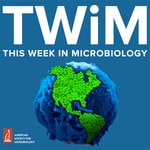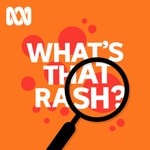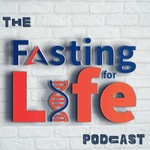This Week in Microbiology – Details, episodes & analysis
Podcast details
Technical and general information from the podcast's RSS feed.

This Week in Microbiology
Vincent Racaniello
Frequency: 1 episode/16d. Total Eps: 338

Recent rankings
Latest chart positions across Apple Podcasts and Spotify rankings.
Apple Podcasts
🇨🇦 Canada - lifeSciences
01/08/2025#16🇬🇧 Great Britain - lifeSciences
01/08/2025#29🇩🇪 Germany - lifeSciences
01/08/2025#80🇺🇸 USA - lifeSciences
01/08/2025#22🇫🇷 France - lifeSciences
01/08/2025#65🇨🇦 Canada - lifeSciences
31/07/2025#22🇬🇧 Great Britain - lifeSciences
31/07/2025#78🇩🇪 Germany - lifeSciences
31/07/2025#69🇺🇸 USA - lifeSciences
31/07/2025#21🇨🇦 Canada - lifeSciences
30/07/2025#15
Spotify
No recent rankings available
Shared links between episodes and podcasts
Links found in episode descriptions and other podcasts that share them.
See allRSS feed quality and score
Technical evaluation of the podcast's RSS feed quality and structure.
See allScore global : 38%
Publication history
Monthly episode publishing history over the past years.
316: Food Addiction and the Gut Microbiome
Episode 316
vendredi 23 août 2024 • Duration 56:23
TWiM describes experiments to explore gut microbiota signatures of vulnerability to food addiction in mice and humans, and how a phage tail-like protein suppresses competitors in populations of bacteria of plants.
Hosts: Vincent Racaniello, Michael Schmidt, Petra Levin and Michele Swanson.
Become a patron of TWiM.
Links for this episode- Gut microbiota and food addiction (Probiotics)
- Blautia may have probiotic properties (Gut Microbes)
- Blautia wexlerae ameliorates obesity and type 2 diabetes (Nat Commun)
- Phage tail–like bacteriocin suppresses competitors (Science)
- What is a bacteriocin? (Front Micro)
- Take the TWiM Listener survey!
Send your microbiology questions and comments (email or recorded audio) to twim@microbe.tv
315: How Pseudomonas Became A Global Pathogen
Episode 315
vendredi 9 août 2024 • Duration 58:00
TWiM explores evolution and host adaptation of Pseudomonas infections of plants, and the impact of COVID-19 on ESBL-producing E. coli on urinary tract and blood infections.
Hosts: Vincent Racaniello and Michael Schmidt.
Become a patron of TWiM.
Links for this episode- Evolution and host adaptation of Pseudomonas (Science)
- Type III secretion system, infection by injection (Nat Comm)
- Demographic inference with skyline plots (Peer J)
- Skyline plots (Taming the Beast)
- Panaroo, a bacterial genome analysis pipeline (Wellcome Sanger Inst)
- Impact of COVID-19 on ESBL-producing E. coli infections (Antimicro Resist Inf Control)
- Take the TWiM Listener survey!
Music used on TWiM is composed and performed by Ronald Jenkees and used with permission.
Send your microbiology questions and comments (email or recorded audio) to twim@microbe.tv
306: Spirulina Smoothies
Episode 306
vendredi 15 mars 2024 • Duration 52:45
TWiM discusses the identification of natural products from reconstructed ancient bacterial genomes, and how plant mRNAs move into a fungal pathogen via extracellular vesicles to reduce infection.
Hosts: Vincent Racaniello, Michael Schmidt, and Petra Levin.
Become a patron of TWiM.
Links for this episode- Natural products from ancient bacterial genomes (Science)
- Plant mRNAs move into fungal pathogens (Cell Host Microb)
- Take the TWiM Listener survey!
Send your microbiology questions and comments (email or recorded audio) to twim@microbe.tv
216: It starts with a cough
Episode 216
vendredi 1 mai 2020 • Duration 01:03:35
The TWiM team discuses saliva as more sensitive for SARS-CoV-2 detection in COVID-19 patients than nasopharyngeal swab and how Mycobacterium tuberculosis sulfolipid-1 activates nociceptive neurons and induces cough.
Links for this episode:
- Preventing the next pandemic (NY Times)
- COVID-19 treatment guidelines (NIH)
- Saliva sensitive for SARS-CoV-2 detection (medRxiv)
- A mycobacterial molecule provokes cough (Cell)
- Letters read on TWiM 216
- 20% off The Invisible ABCs for TWiM listeners! Use promo code: ABC20 at checkout.
Become a patron of TWiM.
Music used on TWiM is composed and performed by Ronald Jenkees and used with permission.
Send your microbiology questions and comments to twim@microbe.tv
215: Cultural transformation and pathogen emergence
Episode 215
vendredi 17 avril 2020 • Duration 56:44
A ferret model for infection by SARS-CoV-2, and how Neolithization lead to emergence of a human bacterial pathogen.
Hosts: Vincent Racaniello, Elio Schaechter, Michele Swanson and Michael Schmidt
Links for this episode:
- Infection and transmission of SARS-CoV-2 in ferrets (Cell Host Micr)
- Neolithization led to emergence of Salmonella enterica (Nat Ecol Evol)
- Arnold Demain (Wikipedia)
Music used on TWiM is composed and performed by Ronald Jenkees and used with permission.
Send your microbiology questions and comments to twim@microbe.tv
Become a patron of TWiM.
214: Masterful subversion
Episode 214
vendredi 3 avril 2020 • Duration 58:37
Vincent, Elio and Michael reveal the ASM COVID-19 summit, and how Salmonella injects a protein into the cell to drive suppression of the immune response.
- ASM COVID-19 Summit
- Value of SARS-CoV-2 diagnostic testing (mBio)
- How SARS-CoV-2 is changing (nextstrain)
- Contribute to COVID-19 data
- Salmonella effector suppresses inflammation (Cell Host Micr)
Subscribe to TWiM (free) on Apple Podcasts, Google Podcasts, Android, RSS, or by email.
Become a patron of TWiM.
213: Fugitive emissions
Episode 213
vendredi 20 mars 2020 • Duration 01:01:17
Vincent, Elio and Michael discuss the stability of human coronaviruses on surfaces and in aerosols, and peptidoglycan production by a mosaic consisting of a bacterium within a bacterium within an insect.
Links for this episode:
- Human coronavirus 229E infectivity on common surfaces (mBio)
- Aerosol and surface stability of SARS-CoV-2 (medRxiv)
- Peptidoglycan synthesis by a insect-bacteria mosaic (Cell)
- Letters read on TWiM 213
Become a patron of TWiM.
Music used on TWiM is composed and performed by Ronald Jenkees and used with permission.
Send your microbiology questions and comments to twim@microbe.tv
212: A coronavirus outbreak and IRF4 deficiency in Whipple’s disease
Episode 212
jeudi 6 février 2020 • Duration 55:26
The TWiM team reviews the coronavirus outbreak that began in Wuhan, China, and the finding that an IRF deficiency underlies Whipple’s disease.
- 2019-nCoV case tracking (JHU)
- Clinical features of infection with 2019-nCoV (Lancet)
- Early transmission dynamics of 2019-nCoV (NEJM)
- Isolation of 2019-nCoV (NEJM)
- TLR4 defect in Whipple’s disease (eLife)
Become a Patron of TWiM!
Music used on TWiM is composed and performed by Ronald Jenkees and used with permission.
Send your microbiology questions and comments to twim@microbe.tv
211: Bacteria, colon cancer and fire blight
Episode 211
jeudi 9 janvier 2020 • Duration 01:18:11
The Fellowship of the TWiM reveal that colorectal cancer-associated microbiota are associated with higher numbers of methylated genes in colonic mucosa, and identification of metabolites needed by the fire blight disease bacterium for virulence in apples.
Become a patron of TWiM.
Links for this episode:
- Colorectal cancer and the gut microbiome (PNAS)
- Fire blight (YouTube)
- Fire blight spreads north (NY Times)
- E. amylovora auxotrophs (Appl Environ Micro)
Music used on TWiM is composed and performed by Ronald Jenkees and used with permission.
Send your microbiology questions and comments to twim@microbe.tv
210: The Waze of microbes
Episode 210
jeudi 5 décembre 2019 • Duration 01:16:24
The Microbial Comrades present the oldest osteosynthesis in history, and how a small molecule produced by stressed bacteria is a warning signal that repels healthy populations to promote their survival.
Hosts: Vincent Racaniello, Elio Schaechter, Michele Swanson and Michael Schmidt
Subscribe to TWiM (free) on Apple Podcasts, Google Podcasts, Android, RSS, or by email.
Become a patron of TWiM.
Links for this episode- P. aeruginosa PQS repels bacteria(J Bact)
- PQS signaling(J Bact)
- Letters read on TWiM 210
- TWiM Listener survey
Send your microbiology questions and comments (email or recorded audio) to twim@microbe.tv









